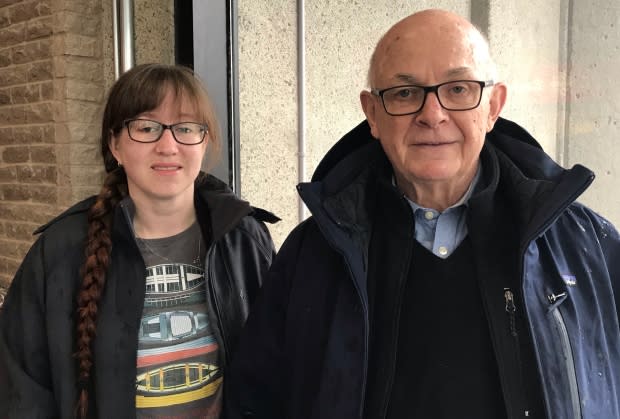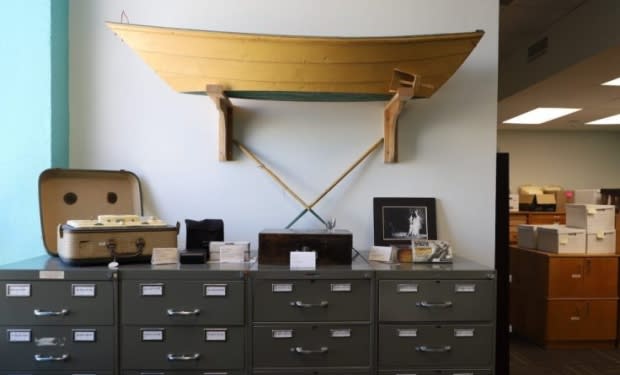Folklore at 50: Tradition and culture alive as MUN folklore celebrates 50 years
As the folklore department at Memorial University marks its golden anniversary, professors and students are looking back on the faculty's 50 years of finding and preserving stories and songs.
Neil Rosenberg, now professor emeritus of folklore, was one of the first professors in the department, and left Austin, Texas to begin teaching at Memorial in 1968.
Rosenberg joined renowned American anthropologist and folklorist Herbert Halpert who founded MUN's program in the early 1960s. He says Halpert's goal was to record as much of the province's heritage as possible.
"It was really to document Newfoundland culture and the traditions of Newfoundland … that's really what he was doing, going into the outports and trying to get the oldest traditions that he could find," said Rosenberg.
"He arrived here in '62 and he spent every summer up through '67 on the road — as much as you could be on the road here in Newfoundland then — with a tape recorder, travelling with other people sometimes, doing field work."
It was a way of seeing culture anew. - Neil Rosenberg
Rosenberg said he was familiar with the work of folklorists who had visited Newfoundland and Labrador to study the music of the province, and his own studies drew him to join Halpert at Memorial.
"I knew that this was a great place for folk song," he said.
"It was a way of seeing culture anew ... there was a tremendous amount of activity, but it wasn't like anything I had experienced in Indiana with bluegrass [music]."
Folklore creating roots
Crystal Braye joined the department as a masters student nearly 40 years after Rosenberg, but was also drawn in by the culture of the province.
"I did a class in folklore and I realized at that time that you could do a whole degree in folklore and the program was offered in Newfoundland where I had family ties," she said.
"I guess being raised by nostalgic Newfoundlanders in Ontario really drew me to Newfoundland culture."

Almost 10 years after graduating, Braye said studying folklore changed her life.
"It's rooted me here. I feel like it led me to something I really enjoy doing."
Research effects culture
Braye, who is now a folklorist with the Wooden Boat Museum in Winterton, said recognizing and recording people's stories have important "individual impacts."
She said a man in Winterton was able to learn his father's boat building techniques because they were recorded as part of folklore field research.

Rosenberg pointed to the popularity and visibility of mummers to show the effect the department's research has had in recognizing the province's culture.
"All you have to do is go downtown and go into a souvenir shop and there are little statuettes of mummers … we have a big parade at Christmas that's a reinstatement of something that happened in the 19th century," he said.
"That's just one thing, but there are lots of other examples in which material uncovered through research has been fed back into the society as a whole."
We're never going to run out of stuff to do. - Neil Rosenberg
The department of folklore at MUN has attracted a mixture of both locals and come-from-aways over the years, Rosenberg said, many of whom are now working as folklorists all over the world.
And after half a century — and a lot of changes in Newfoundland and Labrador — Rosenberg said folklore still has a bright future in the province.
"Folklore is constantly being created anew, so we're never going to run out of stuff to do," he said.
"There'll be stories and jokes and new ways of doing old things, that's part of how it works."
The university has planned an evening to mark the anniversary called Food, Stories and Songs of this Place: Celebrating 50 Years of Folklore Education in N.L. on Saturday, June 1 and are inviting folklorists and friends to attend.
Read more from CBC Newfoundland and Labrador

